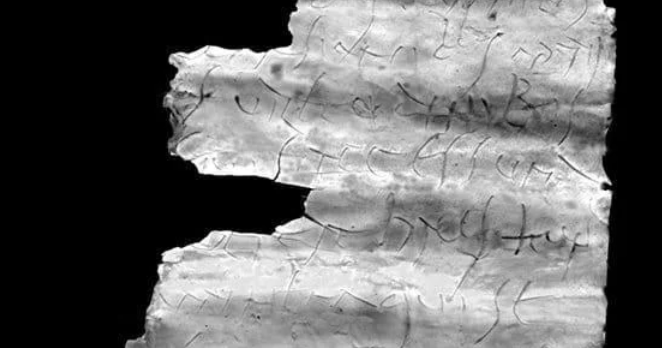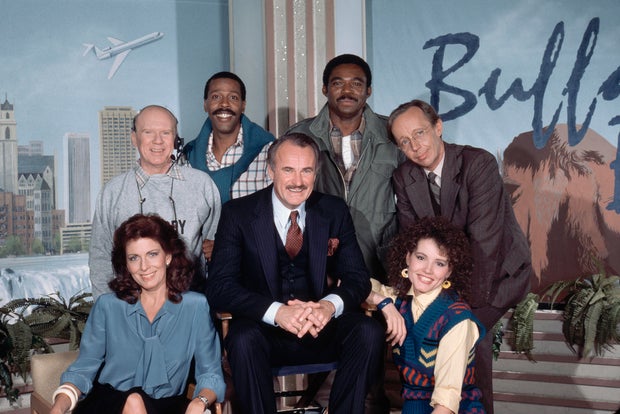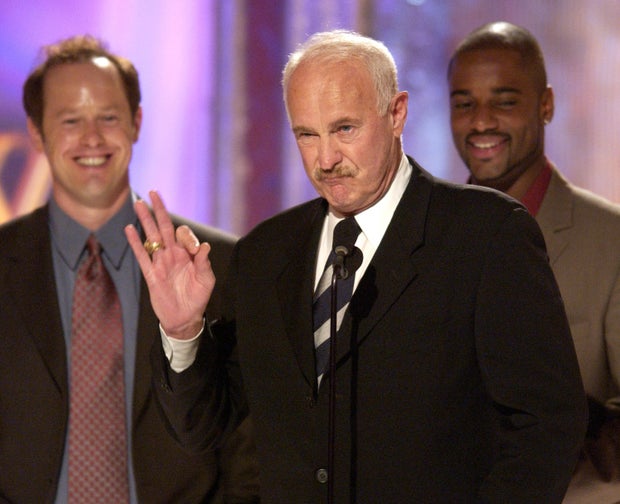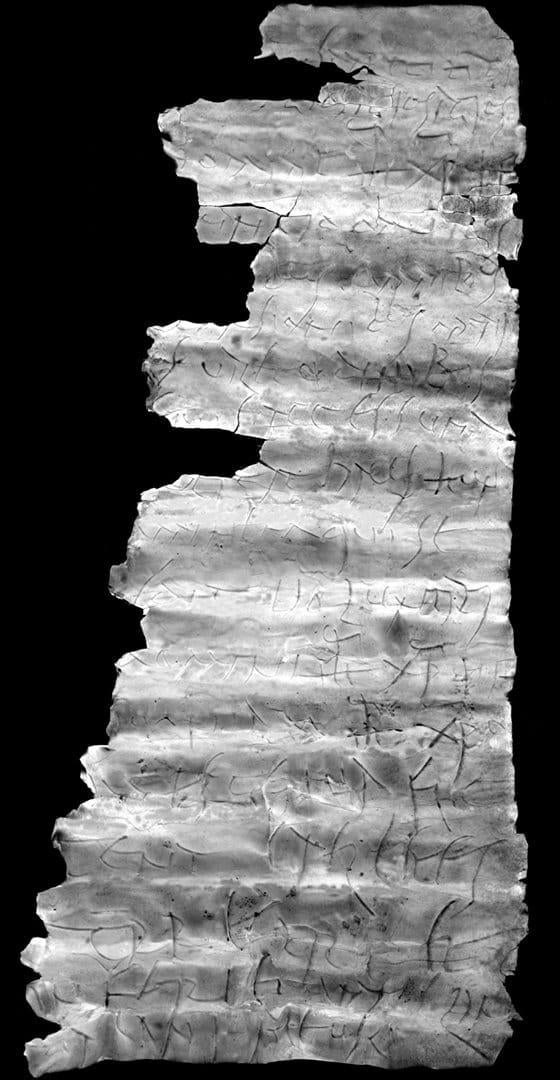CBS News
Dabney Coleman, “9 to 5” and “Tootsie” actor, dies at 92

Dabney Coleman, the mustachioed character actor who specialized in smarmy villains like the chauvinist boss in “9 to 5” and the nasty TV director in “Tootsie,” has died. He was 92.
Coleman died Thursday, his daughter, Quincy Coleman, told The Hollywood Reporter. No other details were immediately available.
“The great Dabney Coleman literally created, or defined, really – in a uniquely singular way – an archetype as a character actor. He was so good at what he did it’s hard to imagine movies and television of the last 40 years without him,” Ben Stiller wrote on X.
For two decades, Coleman labored in movies and TV shows as a talented but largely unnoticed performer. That changed abruptly in 1976 when he was cast as the incorrigibly corrupt mayor of the hamlet of Fernwood in “Mary Hartman, Mary Hartman,” a satirical soap opera that was so over the top no network would touch it.
Producer Norman Lear finally managed to syndicate the show, which starred Louise Lasser in the title role. It quickly became a cult favorite. Coleman’s character, Mayor Merle Jeeter, was especially popular, and his masterful, comic deadpan delivery did not go overlooked by film and network executives.
A six-footer with an ample black mustache, Coleman went on to make his mark in numerous popular films, including as a stressed out computer scientist in “War Games,” Tom Hanks’ father in “You’ve Got Mail,” and a fire fighting official in “The Towering Inferno.”
Earl Gibson III via Wireimage
He won a Golden Globe for “The Slap Maxwell Story” and an Emmy Award for best supporting actor in Peter Levin’s 1987 small screen legal drama “Sworn to Silence.” Some of his recent credits include “Ray Donovan” and a recurring role on “Boardwalk Empire,” for which he won two Screen Actors Guild Awards.
In the groundbreaking 1980 hit “9 to 5,” he was the “sexist, egotistical, lying, hypocritical bigot” boss who tormented his unappreciated female underlings — Jane Fonda, Lily Tomlin and Dolly Parton — until they turned the tables on him.
In 1981, he was Fonda’s caring, well-mannered boyfriend, who asks her father (played by her real-life father, Henry Fonda) if he can sleep with her during a visit to her parents’ vacation home in “On Golden Pond.”
Opposite Dustin Hoffman in “Tootsie,” he was the obnoxious director of a daytime soap opera that Hoffman’s character joins by pretending to be a woman. Among Coleman’s other films were “North Dallas Forty,” “Cloak and Dagger,” “Dragnet,” “Meet the Applegates,” “Inspector Gadget” and “Stuart Little.” He reunited with Hoffman as a land developer in Brad Silberling’s “Moonlight Mile” with Jake Gyllenhaal.
Herb Ball via Getty Images
Coleman’s obnoxious characters didn’t translate quite as well on television, where he starred in a handful of network comedies. Although some became cult favorites, only one lasted longer than two seasons, and some critics questioned whether a series starring a lead character with absolutely no redeeming qualities could attract a mass audience.
“Buffalo Bill” (1983-84) was a good example. It starred Coleman as “Buffalo Bill” Bittinger, the smarmy, arrogant, dimwitted daytime talk show host who, unhappy at being relegated to the small-time market of Buffalo, New York, takes it out on everyone around him. Although smartly written and featuring a fine ensemble cast, it lasted only two seasons.
Another was 1987’s “The Slap Maxwell Story,” in which Coleman was a failed small-town sportswriter trying to save a faltering marriage while wooing a beautiful young reporter on the side.
Other failed attempts to find a mass TV audience included “Apple Pie,” “Drexell’s Class” (in which he played an inside trader) and “Madman of the People,” another newspaper show in which he clashed this time with his younger boss, who was also his daughter.
He fared better in a co-starring role in “The Guardian” (2001-2004), which had him playing the father of a crooked lawyer. And he enjoyed the voice role as Principal Prickly on the Disney animated series “Recess” from 1997-2003.
Michael Caulfield Archive via Getty Images
Underneath all that bravura was a reserved man. Coleman insisted he was really quite shy.
“I’ve been shy all my life. Maybe it stems from being the last of four children, all of them very handsome, including a brother who was Tyrone Power-handsome. Maybe it’s because my father died when I was 4,” he told The Associated Press in 1984. “I was extremely small, just a little guy who was there, the kid who created no trouble. I was attracted to fantasy, and I created games for myself.”
As he aged, he also began to put his mark on pompous authority figures, notably in 1998’s “My Date With the President’s Daughter,” in which he was not only an egotistical, self-absorbed president of the United States, but also a clueless father to a teenager girl.
Jim Britt /Disney General Entertainment Content via Getty Images
Dabney Coleman was born in 1932 in Austin, Texas. After two years at the Virginia Military Academy, two at the University of Texas and two in the Army, he was a 26-year-old law student when he met another Austin native, Zachry Scott, who starred in “Mildred Pierce” and other films.
“He was the most dynamic person I’ve ever met. He convinced me I should become an actor, and I literally left the next day to study in New York. He didn’t think that was too wise, but I made my decision,” Coleman told The AP in 1984.
Early credits included such TV shows as “Ben Casey,” “Dr Kildare,” “The Outer Limits,” “Bonanza,” “The Mod Squad” and the film “The Towering Inferno.” He appeared on Broadway in 1961 in “A Call on Kuprin.” He played Kevin Costner’s father on “Yellowstone.”
Twice divorced, Coleman is survived by four children, Meghan, Kelly, Randy and Quincy.
CBS News
Lawmakers, Pentagon weigh in on East Coast drone sightings

Watch CBS News
Be the first to know
Get browser notifications for breaking news, live events, and exclusive reporting.
CBS News
What’s in the continuing resolution to avert a government shutdown? See key details from the spending bill.

Washington — Congressional leaders unveiled a stopgap measure late Thursday to keep the government funded for three months, pushing a larger funding fight into the new year.
But the 1,500 page measure, known as a continuing resolution, would do more than keep the government funded at current levels to prevent a government shutdown. The bill is laden with dozens of add-ons that make it resemble the massive end-of-year spending packages that GOP leaders have vowed to avoid.
House Speaker Mike Johnson said ahead of the measure’s release on Tuesday that it was originally intended to be “a very simple, very clean” stopgap funding measure to get the party into the new year. But the Louisiana Republican said a “couple of intervening things” occurred, and he is now left to deal with growing discontent among members of his own party.
Here are some of the bill’s major add-ons:
Disaster funding
The legislation includes $110.4 billion in disaster aid: $29 billion for FEMA’s disaster relief fund; $8 billion for federal highways and roads; $12 billion for the Community Development Block grants and disaster relief; and $3.25 billion for Tribal Assistance grants. It also replenishes the Small Business Administration’s disaster loan program with $2.2 billion. The program was exhausted in the aftermath of Hurricanes Milton and Helene earlier this year.
The measure also includes $21 billion in disaster relief for farmers and $10 billion in economic assistance for farmers, along with a one-year extension of the farm bill.
RFK stadium transfer
The legislation clears the way for a long-sought priority in Washington, D.C.: transferring administrative jurisdiction over the RFK Memorial Stadium Campus to the district, which will allow the city to negotiate the return of the Washington Commanders football team.
The Commanders currently play in Landover, Maryland, and D.C. Mayor Muriel Bowser has vowed to bring the team back to the District.
Baltimore bridge rebuilding
The measure also includes a commitment from the federal government to pay the entire cost of rebuilding Baltimore’s Francis Scott Key Bridge, which collapsed in March.
Sens. Chris Van Hollen and Ben Cardin of Maryland said in a joint statement Tuesday that the provision “will allow the bridge to be built as quickly as possible.” And they noted that federal taxpayers will be reimbursed by insurance payments and through the results of litigation against the company that operated the cargo ship that crashed into the bridge.
Nathan Posner/Anadolu via Getty Images
Pay raise for members of Congress
After more than a decade of blocking pay raises in Congress amid concern over the issue becoming a political liability, the continuing resolution includes a provision that allows an automatic cost of living increase to go into effect for lawmakers.
Since 2009, lawmakers have earned $174,000 annually, with higher salaries for some members of leadership.
Health care policy extenders and reforms
Within the legislation is a health care package that spans hundreds of pages. It takes on a number of priorities for lawmakers, from extending telehealth flexibility under Medicare to a five-year reauthorization of legislation aimed at combatting the opioid crisis and a measure to prevent pandemics. The legislation also requires pharmacy benefit managers to provide detailed data on drug spending and pass on the full amount of rebates to lower drug costs for American consumers.
Transparency in ticket and hotel prices
The funding measure also includes provisions aimed at making hotel and live-event ticket prices more transparent by prohibiting deceptive advertising. The legislation requires that ticket sellers and hotels must disclose the full price, while the ticket sellers must guarantee refunds in the event of cancellation or postponement.
Addressing drone threats
Among the legislation is a measure to counter threats from drones following a slew of mysterious drone sightings on the East Coast that have prompted concern. The legislation extends a portion of the Homeland Security Act that authorizes officials to track unmanned aircrafts and disrupt their control.
contributed to this report.
CBS News
Ancient inscription could rewrite history of Christianity north of Italy, archaeologists say

Archaeologists have discovered an inscribed silver amulet that one theologian now says may rewrite the history of Christianity north of the Alps mountain range.
The inscribed amulet was found buried in a grave in Frankfurt, Germany in 2018, according to a news release from the city. The amulet is just over an inch in size, the city said, with an inscribed thin silver foil rolled up inside. It took years to determine what the inscription said: It had to be deciphered by a computer scan because the foil was too fragile to unroll. The so-called “Frankfurt Silver Inscription” was presented to the public earlier in December.
The inscription was determined to be a statement of faith in Jesus Christ, written in Latin. The statement shows that the wearer “was clearly a devout Christian, which is absolutely unusual for this time,” the city said.
Researchers dated the grave where the amulet was found to between 230 and 270 AD. This is the earliest evidence of Christianity north of the Alps, the city said: All other finds are several decades younger, with “reliable evidence” of the religion in the region dating back to the 4th century.
Leibniz Institute for Archaeology in Mainz
The inscription mentions no religion besides Christianity, which researchers said is unusual. Up until the 5th century, these kind of amulets “always contain a mixture of different faiths,” such as Judaism or paganism. Instead, it is entirely based on Christianity. At one point the invocation “Holy, holy, holy!” is present. Researchers previously had dated that invocation no earlier than the 4th century. The amulet also included quotations from the Bible used by Christians at that time.
“The ‘Frankfurt Inscription’ is a scientific sensation,” city mayor Mike Josef said in a translated statement. “It will force us to turn back the history of Christianity in Frankfurt and far beyond by around 50 to 100 years. The first Christian find north of the Alps comes from our city: we can be proud of that, especially now, so close to Christmas. Those involved have done a great job.”
Researchers said that this find will lead to a reevaluation of the burial ground where the amulet was uncovered. It will also lead to a revision of ideas about Christianity north of the Alps.
German church historian Ulrich Volp told the Evangelical Press Service that the amulet can be used to help understand how Christianity spread through the Roman Empire in the 3rd century, even amid persecution.
“The significance of the discovery can hardly be overestimated,” Volp said.
The news comes about six months after a experts in Germany said a newly deciphered manuscript dating back 1,600 years was determined to be the oldest record of Jesus Christ’s childhood.














